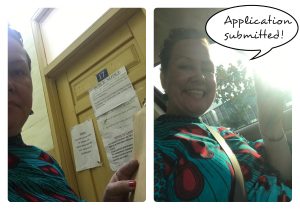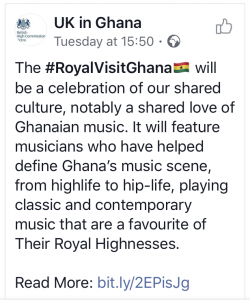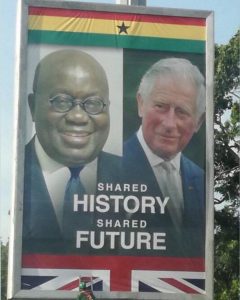I just landed in Atlanta, Georgia and am looking forward to spending the rest of the week at the African Studies Association conference networking and learning from my researcher heroes. The conference has the theme Energies: Power, Creativity and Afri-Futures and is expecting about 2000(!) delegates in 300 events over three days. You can follow all of it under the hashtag #AfricanStudies2018 across social platforms and Ghana studies’ scholars use the hashtag #GSAatASA2018

I have crafted my own mini-program which starts with my own panel at the conference – a discussion on Politically Motivated Internet Shutdowns will happen in this AfricaNOW! special series of issues that are ongoing or new. I also look forward to listening to talks by Finnish/Nigerian feminist and blogger MsAfropolitan Minna Salami during the Women’s Caucus Luncheon as well as the President’s Lecture by Prof Jean Allman, Prof Ato Quayson on Kofi Annan and Prof Mahmood Mamdani – all personal heroes and role models of mine!
This is my tentative and quite busy schedule – still I hope to also have much time for networking and one-on-one-talks! See you there?
Thu
10.30-11.30 My AfricaNOW! panel, see description below
2:00 pm [Room L403] Reframing anthropology
2-3.45 publish that article
4-5.45 pitch that article
7.30-9.30 Welcome reception at Morehouse College
Fri
8:30 am [International Hall C] Registers of Belief, Creativity and Power in Ghana
2-3.45 CCNY Publishing in for Africa
4-5pm Kofi Annan by Ato Quayson
6-7pm President’s Lecture Jean Allman
7:15 pm in M302 Ghana Business meeting
Sat
7.30-8.30 Queer African Studies association meeting
10:30 am Roundtable: Futures—African Studies and the Racial Politics of Knowledge Production, 1998-2028
12.45-2pm Womens Luncheon: Minna Salami
2:00 pm [International Hall C] Roundtable: Ghanaian Popular Culture Studies: (also Advocacy, also Flash presentations)
6-7pm Mahmood Mamdani Hoormud lecture
7-12pm Awards and Dance party
AfricaNOW!
The increase of politically motivated Internet Shutdowns in Africa: Lessons from democracy research and activism
This session seeks to frame a discussion on internet disruptions as a frontier of democracy research and activism on the continent and seeks to be highly interactive. After an introductory presentation on the state of internet disruptions in Africa, an academic discussant will highlight pertinent issues for democracy scholars and an activist discussant will report on new strategies to curb these disruptions.
Recent elections where shutdowns have been an issue: Mali (August), Cameroon (October),
Dr. Kajsa Hallberg Adu, Ashesi University (presenter), Dr. George Bob-Milliar, KNUST, Ghana (Academic Discussant), Mr. Peter Micek, General Counsel, AccessNow (Activist Discussant)

 .
.
